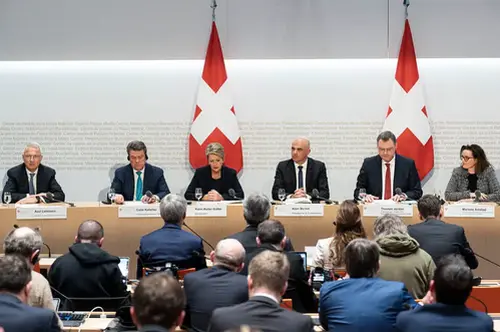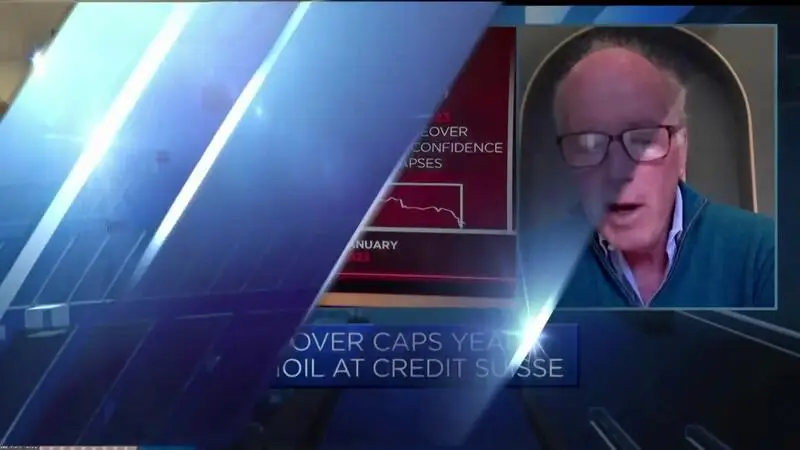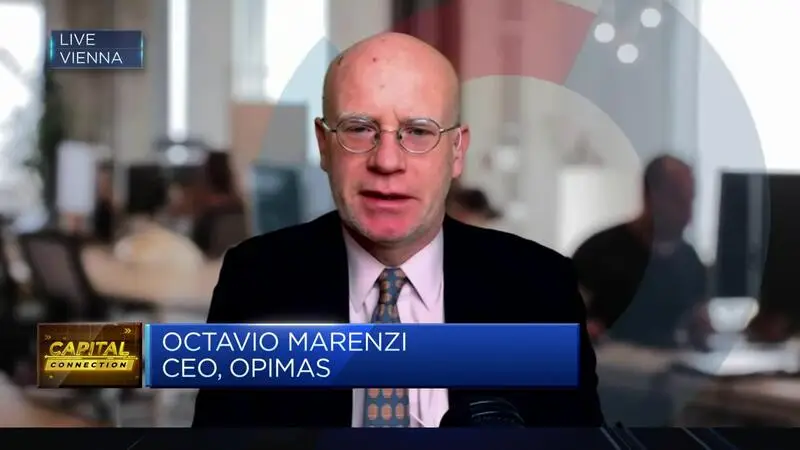
The Swiss claim the U.S. banking crisis ultimately toppled Credit Suisse. But are they right?
Following Credit Suisse's "emergency rescue" by rival UBS, Swiss authorities placed a heavy emphasis on the role of U.S. regional banking collapses in pushing the stricken Swiss lender to the brink.
Credit Suisse's most recent share price plunge began with the collapse of U.S.-based Silicon Valley Bank, but was compounded when the 167-year-old Swiss institution announced that it had found "material weaknesses" in its financial reporting procedures.
Confirmation from top investor the Saudi National Bank that it could not provide any more funding to Credit Suisse then provided the final blow, prompting the announcement of a loan of up to 50 billion Swiss francs ($54.2 billion) from the Swiss National Bank. By that point, Credit Suisse shares were down by around 98% from their all-time high in April 2007.
The loan intervention ultimately failed to restore investor confidence and Swiss authorities brokered the bank's emergency sale to UBS for 3 billion Swiss francs over the weekend.
"The latest developments that emanated from the banks in the U.S. hit us at the most unfavorable moment. One time, like last year, we were able to overcome the deep market uncertainty, but not this second time," Credit Suisse Chairman Axel Lehmann told a press conference on Sunday night.
"The accelerating loss of confidence and the escalation over the last few days have made it clear that Credit Suisse can no longer exist in its current form. We are happy to have found a solution, which I'm convinced will bring lasting stability and security for clients, staff, financial markets and to Switzerland."
SNB Chairman Thomas Jordan also lamented the "U.S. banking crisis" for accelerating a "loss of confidence in Switzerland" which had repercussions for Credit Suisse's liquidity.

However, the downward spiral of Credit Suisse's share price and mounting asset outflows were underway long before the collapse of Silicon Valley Bank earlier this month. Swiss regulator FINMA has come under fire for allowing the situation to deteriorate as the bank spent years mired in losses and scandal.
Mark Yallop, chairman of the U.K.'s Financial Markets Standards Board and former U.K. CEO at UBS, told CNBC on Tuesday that he agreed with the broad assessment that Credit Suisse's downfall was "idiosyncratic."
"It's unfortunate that the problems with some of the smaller U.S. banks in the last two or three weeks happened at the same time as this issue with Credit Suisse but the two are completely different and very largely unrelated," he said.
"The issues at Credit Suisse are to do with a long history of revolving doors at the top of the firm in management terms, a changing plan, and on top of a series of operational risk and control and compliance problems."
The final straw that sent the share price to an all-time low ahead of a 50 billion loan from the SNB last Thursday, which ultimately failed to restore market confidence in the bank, was the announcement from top investor the Saudi National Bank that it could not provide any more funding to Credit Suisse.

"One never knows with a bank collapse when the moment of crisis will come, but at that point, that was the moment when investors finally threw in the towel and said enough is enough, and the actions that we saw over the weekend became pretty much inevitable," Yallop added.
What's more, swift action from Federal Reserve and the Treasury Department has largely been credited with successfully stemming any potential contagion to the U.S. financial system, which begs the question of how much of the blame for Credit Suisse's demise can really be apportioned to the SVB collapse.
By contrast, the Swiss banking and regulatory system has come under fire.
Steven Glass, managing director and analyst at Pella Funds Management, told CNBC last week that the plunge in Credit Suisse's share price had been a long time coming, and that the loss of confidence of clients was actually crystalized by the bank's exposure to the Greensill Capital collapse in 2021.
"The problem with Greensill, it was actually a huge issue, because that fund was marketed to a whole lot of [Credit Suisse's] high-net-worth individual clients as a very safe fund, as a way to get yield in a low-yield world, and when that blew up, a whole lot of their franchise lost money and they basically lost trust in Credit Suisse," Glass told CNBC's "Capital Connection."

In the aftermath of 9/11, new regulations forced Swiss banks to abandon the client secrecy that for centuries formed their modus operandi, and banks like Credit Suisse took on greater risk in a bid to retain their profitability and prevent high-net-worth clients from taking their money elsewhere, Glass argued.
He suggested that in this context, Credit Suisse losing the trust of its remaining high-net-worth individuals through Greensill, and a litany of other issues down the years, meant the bank "shot itself in the foot."
"Yes, this has come at the same time as SVB and yes as Signature Bank and we can see why one might say it's a broader banking crisis, but in actual fact, what we believe is that a lot of those banks actually had a problem with their business model, more than there being an overt banking crisis," Glass concluded.
This was echoed by Octavio Marenzi, CEO of Opimas, who told CNBC's Capital Connection on Tuesday that the Credit Suisse debacle meant Switzerland's "carefully crafted, honed reputation" for financial stability "lies in tatters."






